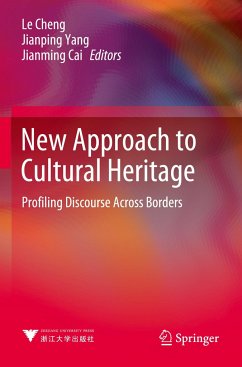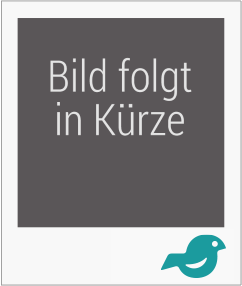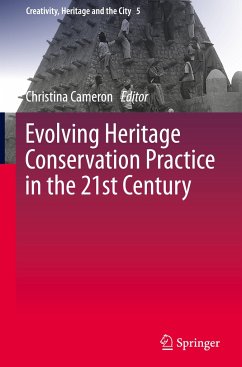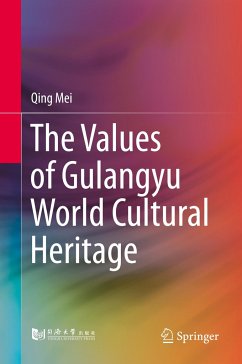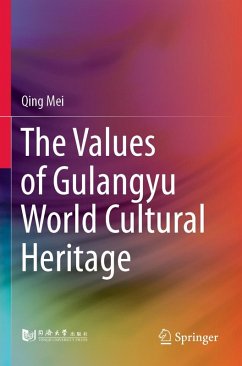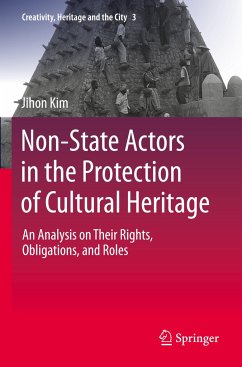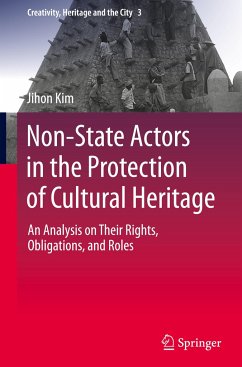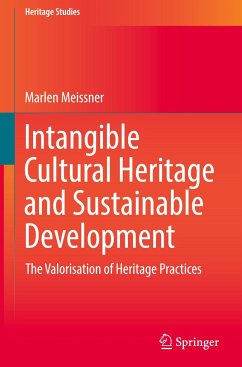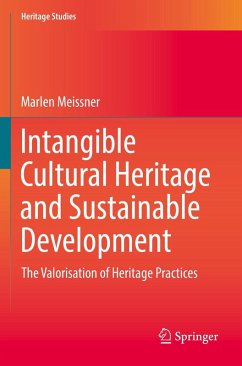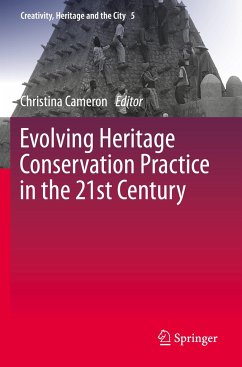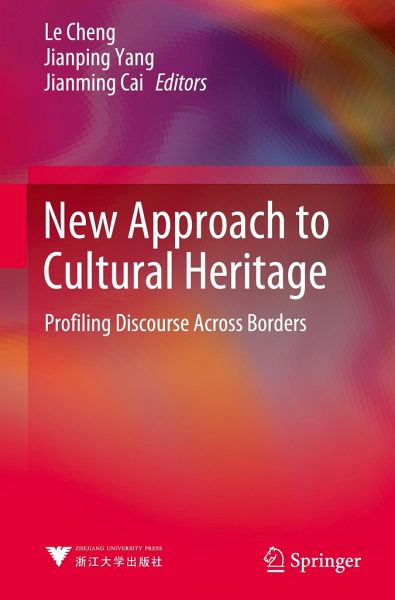
New Approach to Cultural Heritage
Profiling Discourse Across Borders
Herausgegeben: Cheng, Le; Yang, Jianping; Cai, Jianming

PAYBACK Punkte
57 °P sammeln!
This book addresses questions about theories of heritage, its methodologies of research, and where its boundaries lie with tourism, urban development, post-disaster recovery, collective identities, memory, or conflict. This book is a collection of heritage studies from a critical perspective as a product of the 2018 ACHS (Association of Critical Heritage Studies) Conference in Hangzhou, the largest conference of its kind in Asia. The contributors cover a wide spectrum of issues in heritage studies, such as heritage management, accessibility to heritage, heritage conservation and heritage polic...
This book addresses questions about theories of heritage, its methodologies of research, and where its boundaries lie with tourism, urban development, post-disaster recovery, collective identities, memory, or conflict. This book is a collection of heritage studies from a critical perspective as a product of the 2018 ACHS (Association of Critical Heritage Studies) Conference in Hangzhou, the largest conference of its kind in Asia. The contributors cover a wide spectrum of issues in heritage studies, such as heritage management, accessibility to heritage, heritage conservation and heritage policy, and heritage representation. It also examines the various contexts within which heritage emerges and how heritage is constructed within that context. Analyses are based on not only representations of heritage but also on the performativity. Explorations touch upon community involvement, landscape history, children's literature, endangered food, architecture, advertisement, allotment garden, and gender and visual art. As heritage has always been a locus of contested verities, the book offers a variegated approach to heritage studies. It provides students and scholars new perspectives on heritage study.





